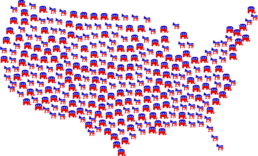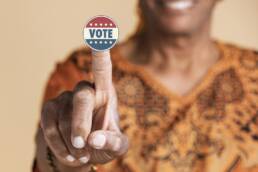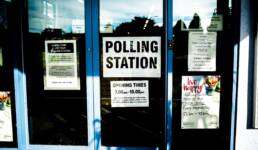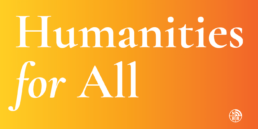MPSA Blog
Do-It-Yourself Redistricting and What I Learned
by Michael A. Smith, Professor of Political Science, Emporia State University I redistricted. Here is what I learned. First, the basics. Redistricting no longer requires sophisticated computer software that only legislative research departments can afford. For more than 10 years now, computer…
Promising Signs for Humanities Funding in the New Administration
By Alexandra Klein, NHA Communications and Government Relations Manager The Biden administration’s request for a funding increase for the National Endowment for the Humanities (NEH) and other humanities programs earlier this year was a welcome change from the Trump administration’s yearly calls to…
A Redistricting Primer
by Michael A. Smith, Professor of Political Science, Emporia State University It’s time for redistricting. What does that mean, and what insights does political science offer? Every ten years, the country experiences reapportionment and redistricting as a result of the decennial Census mandated by…
Making their work count: Political Science students improve Wikipedia
By: Dr. Helaine Blumenthal, Wiki Education Through its ongoing partnership with Wiki Education, MPSA has been helping political science and policy students engage with subject content in meaningful and lasting ways all while improving the world’s access to reliable knowledge in these very fields.…
Land Reform and Civil Conflict: Theory and Evidence from Peru
By Michael Albertus, University of Chicago 2021 AJPS Best Article Award Honorable Mention for the research entitled “Land Reform and Civil Conflict: Theory and Evidence from Peru” The distribution of land to the landless has directly affected well over one billion people since World War II in…
Do International Employment Opportunities Impact Individuals’ Political Preferences and Behavior?
By Nikhar Gaikwad, Kolby Hanson, and Aliz Toth Robert H. Durr Award for Best Paper “applying quantitative methods to a substantive problem,” presented at the 2019 Midwest Political Science Association Annual Meeting Millions of people around the world migrate overseas for employment each year, and…
Georgia’s New Voting Laws Meet Political Science
by Michael A. Smith, Professor of Political Science, Emporia State University Controversy swirls around Georgia’s new voting laws, along with similar ones in Florida, Texas, and several other states. Passed ostensibly to control voting fraud in the wake of the huge vote-by-mail turnout last year,…
Their economic pain, our emotional gain: Can schadenfreude motivate responses to redistributive policies?
By Hannah Nam, Samuel Jens, and Yanna Krupnikov New Jersey is one of the first states expected to adopt a “millionaires tax” that raises taxes on those who make over a million dollars a year. In announcing the new policy, the state’s governor, Phil Murphy, stated, “We do not hold any grudge at all…
NHA's Newest Resource Provides Strategies for Making the Case for the Humanities on Campus
By Scott Muir, Study the Humanities project director In the context of the financial fallout of the COVID-19 pandemic and the widespread decline in humanities majors and enrollments precipitated by the last recession, faculty and administrators across the humanities are redoubling their efforts to…
Biased? Sure. Lying, no.
by Michael A. Smith, Professor of Political Science, Emporia State University Accusations that the news media are biased are now so common as to become cliché. Undoubtedly, the media are biased. In fact, bias is inevitable in human decision making. Unfortunately, one of the greatest political…










